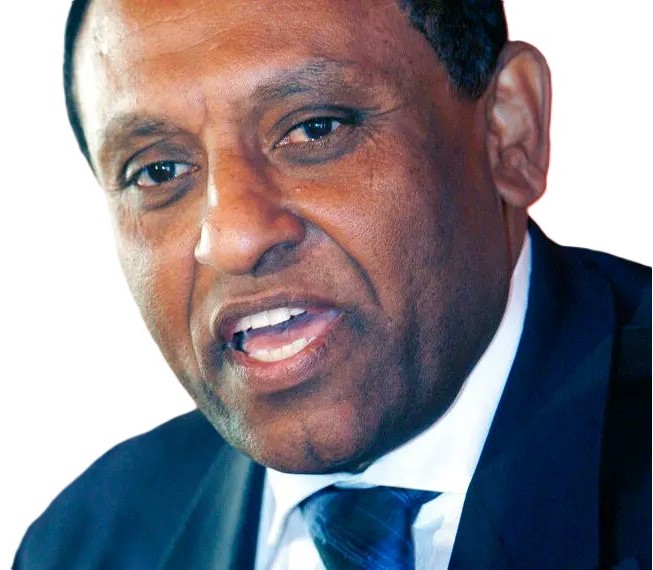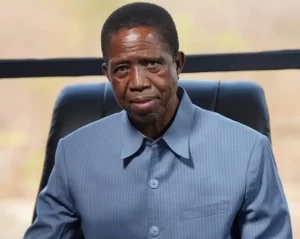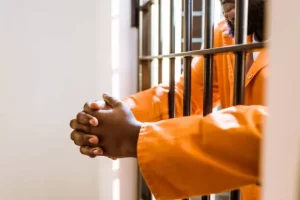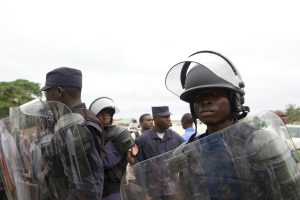Sudan’s new PM dissolves government one day after taking office
3 min read
Kamil Idris disbands Sudan’s caretaker government just 24 hours after taking office, as civil war and humanitarian crisis deepen.
Sudanese Prime Minister Kamil Idris has taken a bold and unexpected step by dissolving the country’s caretaker government, just one day after assuming office. The announcement was confirmed by the state-run news agency SUNA, sending shockwaves across Sudan’s volatile political landscape.
Idris, who was sworn in on Saturday, becomes Sudan’s first prime minister since the 2021 military coup that dismantled the transitional civilian-led government. His appointment was seen by some observers as a potential turning point for the country. However, his swift dissolution of the existing government signals a desire to completely reset the political order as the nation reels from the impacts of an ongoing civil war.
War-Torn Sudan in Crisis
Sudan has been engulfed in chaos since April 2023, when simmering tensions between the Sudanese Armed Forces (SAF) and the powerful Rapid Support Forces (RSF) escalated into full-scale conflict. Fighting began in the capital Khartoum and soon spread to other regions, most notably Darfur, which has seen some of the worst violence and atrocities in recent memory.
The war has devastated the country’s infrastructure and claimed at least 24,000 lives, though the actual toll is believed to be much higher. The humanitarian crisis is equally staggering: more than 14 million people have been displaced, including over 4 million refugees who have fled to neighboring countries such as Chad, Egypt, and South Sudan.
In his first national address on Sunday, Idris called on foreign backers of the RSF to “end their criminal operations”, signaling a firm stance against both internal and external actors prolonging the conflict.
“Our nation cannot move forward while outside forces continue to arm militias and destabilize our sovereignty,” Idris declared.
He also promised to lead the country with “sincerity and dedication,” although he offered no timeline for appointing a new government or forming a permanent cabinet.
Atrocities and Humanitarian Collapse
The war has triggered mass atrocities, including reports of ethnically motivated killings, sexual violence, and enforced disappearances. The United Nations and human rights groups have accused both sides—but especially the RSF—of committing war crimes and crimes against humanity, particularly in Darfur.
Entire towns have been razed, hospitals bombed, and millions cut off from aid as humanitarian access becomes increasingly difficult. The World Food Programme and Doctors Without Borders have warned of looming famine in parts of Darfur, Kordofan, and White Nile states.
At least five locations are now officially classified as famine zones, with the epicenter located in West Darfur, where aid groups say tens of thousands may starve without immediate international intervention.
A Country in Political Limbo
The dissolution of the caretaker government throws Sudan’s fragile political roadmap into uncertainty. Many hoped that Idris, a respected international legal scholar and former director general of the World Intellectual Property Organization (WIPO), would bring diplomatic credibility and reform. But his early move to dismantle the existing cabinet suggests a complete overhaul of governance structures may be underway.
International responses have been cautious. The African Union and United Nations both released brief statements urging restraint and encouraging Idris to form an inclusive government.
Meanwhile, regional powers are watching closely. Egypt, the UAE, and Saudi Arabia have all played roles—directly or indirectly—in Sudan’s civil war, either as brokers of peace or supporters of rival factions.
As the nation teeters on the brink, citizens continue to suffer. Streets once bustling with life in Khartoum and Nyala are now ghost towns. Schools remain closed, hospitals are overwhelmed, and food supplies have dwindled to dangerous lows.
For many Sudanese, hope now rests on Idris’s ability to break the deadlock, unite the nation, and end the bloodshed. But with no clear government in place and civil war still raging, the road ahead looks anything but certain.





